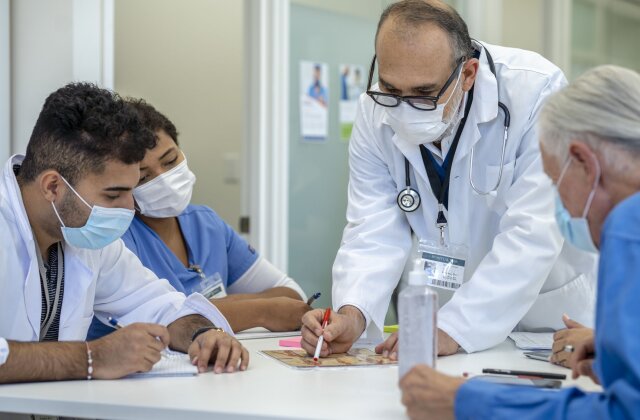Mastering Practical Experiments in GCSE Biology

GCSE Biology involves a significant amount of practical work, including experiments and investigations that allow students to apply their theoretical knowledge to real-world situations. These practical activities not only enhance understanding but also develop essential scientific skills such as observation, analysis, and problem-solving. In this article, we'll explore some key strategies for mastering practical experiments in GCSE Biology.
1. Preparation and Planning
Before undertaking any practical experiment, thorough preparation and planning are essential. This involves:
- Understanding the Experiment: Carefully read through the experiment's instructions to grasp the purpose, methodology, and expected outcomes. Make sure you understand the scientific concepts involved and how they relate to the experiment.
- Gathering Equipment and Materials: Ensure that you have all the necessary equipment, chemicals, and resources required for the experiment. Check that your equipment is clean, calibrated (if applicable), and functioning correctly.
- Safety Precautions: Identify any potential hazards associated with the experiment and take appropriate safety precautions. This may include wearing protective gear such as safety goggles, gloves, and lab coats, as well as knowing the location of safety equipment like fire extinguishers and eyewash stations.
- Recording Setup: Plan how you will record your observations and results. This might involve setting up a data table or creating a data collection sheet.
2. Performing the Experiment
Once you're prepared, it's time to carry out the experiment. Here are some key considerations:
- Follow the Procedure: Carefully follow the experiment's procedure step by step, recording your observations and measurements accurately as you go. Pay attention to any specific timing instructions or other details that may impact the results.
- Control Variables: If the experiment involves multiple variables, ensure that you control all variables except the one you're investigating. This will help you isolate the effect of the independent variable on the dependent variable.
- Repeat Trials: If possible, repeat the experiment multiple times to ensure the reliability of your results. This can help you identify any anomalies or inconsistencies.
- Adapt as Needed: Sometimes, unexpected issues arise during an experiment. Be prepared to adapt your approach if necessary, but always ensure that any changes you make are scientifically justified.
3. Data Analysis and Interpretation
Once you've completed the experiment, it's time to analyze your data and draw conclusions. Here's how:
- Organize Your Data: Compile your observations and measurements into a coherent format, such as a table, graph, or chart. This will make it easier to identify patterns and trends.
- Analyze Trends: Look for patterns or trends in your data that relate to the scientific concepts being investigated. For example, if you're investigating the effect of temperature on enzyme activity, you might notice that enzyme activity increases with temperature up to a certain point, then decreases.
- Interpret Your Findings: Based on your data analysis, draw conclusions about the relationship between the independent and dependent variables. For example, you might conclude that increasing temperature initially increases enzyme activity due to increased kinetic energy, but high temperatures denature the enzyme, leading to a decrease in activity.
4. Reporting and Evaluating
Finally, it's important to effectively communicate your findings and evaluate the experiment's success:
- Write a Report: Prepare a written report that summarizes the experiment's purpose, methodology, results, and conclusions. Include any relevant calculations, observations, and data.
- Reflect on the Experiment: Evaluate the success of the experiment and consider any limitations or sources of error. Reflect on what you learned from the experiment and how it relates to broader scientific concepts.
Conclusion
Mastering practical experiments in GCSE Biology requires careful planning, precise execution, thorough data analysis, and effective communication of findings. By following the strategies outlined in this article, you can enhance your understanding of scientific concepts and develop essential scientific skills that will serve you well in your GCSE Biology studies and beyond.




